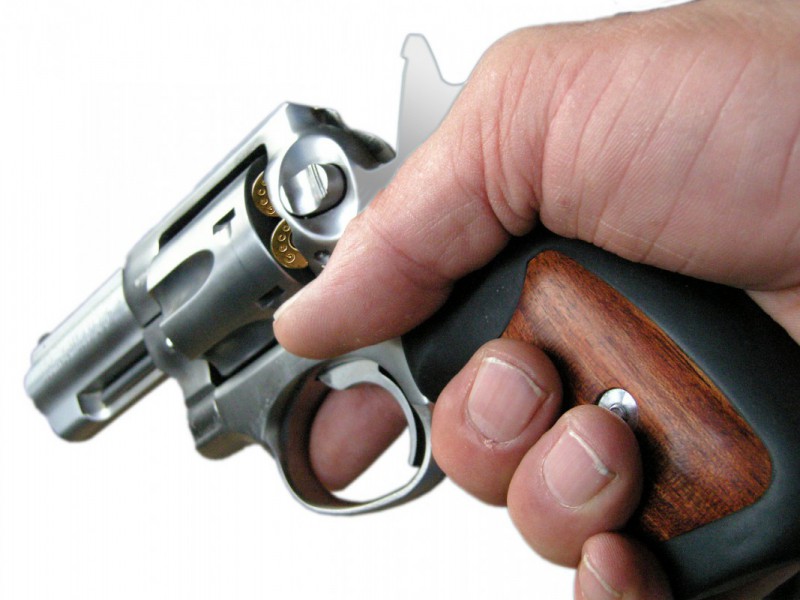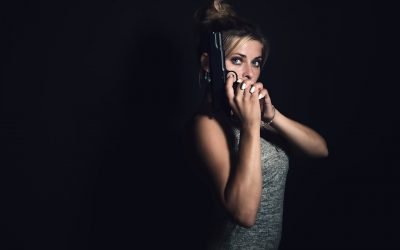It’s amazing. When Hollywood celebrities who support gun control or gun bans advocate these policies, we’re supposed to humbly and uncritically listen. Even when some celebrities, such as Rosie O’Donnell, support gun bans while claiming special exceptions for themselves, we’re supposed to remain sanguine about their hypocrisy.
Yet when the victims of one of the worst school shootings in American history—Evan Todd, who survived the Columbine, Colorado, massacre back in 1999—offers a perspective opposing gun bans, the media barely notices. You would think it might at least qualify as newsworthy, and the fact it doesn’t shows just how one-sided and biased our media establishment truly is.
In reality, it doesn’t matter where an argument comes from. What matters is whether an argument is true. The truth or falsehood of a point-of-view does not reside in who says it; it resides in the facts, logic and premises of the argument itself.
Nevertheless, that’s not how it works in contemporary society. Basically, if a position is argued from the “leftist” (establishment) point-of-view, then it’s automatically true, or at least worth considering. If it’s not, then it’s evil or simply ignored.
It’s sadly ironic that it takes a survivor of one of the more deadly shooting incidents (the worst at the time) to point out what might otherwise have been obvious. In his “open letter to President Obama,” Evan Todd states the following:
Virginia Tech was the site of the deadliest school shooting in U.S. history. Seung-Hui Cho [the Virginia Tech killer] used two of the smallest caliber hand guns manufactured and a handful of ten round magazines. There are no substantial facts that prove that limited magazines would make any difference at all.
Second, this is just another law that endangers law-abiding citizens. I’ve heard you ask, “why does someone need 30 bullets to kill a deer?”
Let me ask you this: Why would you prefer criminals to have the ability to out-gun law-abiding citizens? Under this policy, criminals will still have their 30-round magazines, but the average American will not. Whose side are you on?
It’s sometimes said that liberty, if it’s destroyed, will be destroyed in stages. That’s what I think of when I read of the latest proposals to infringe on the individual’s right to self-defense. Right now, politicians—the very people who cannot even pass a budget or curb a $16 trillion dollar debt—are telling us that they won’t limit our right to self-defense; merely the number of bullets we’re allowed to use in self-defense!?
This would be like the government passing a law stating, “The individual may have the right to eat X grams of fat per day, but not to exceed Y grams of fat.” Or, “The individual may be able to read what he chooses, so long as the author’s last name begins with A through L, but not M through Z.”
If government attempted to pass either of these laws, the immediate response—probably even from a few Hollywood celebrities—would be: “Wait a minute. You can’t say we have freedom of speech, yet only allow us to read certain authors, based on some arbitrary standard.” Or, “You either have the right to eat what you choose, or not.”
These statements are plainly and self-evidently true to anyone. What politicians are counting on is for us not to see the wider principle involved. They’re hoping that government-run schools have “bred” the abstract and conceptual thinking out of us, and they may be right.
Politicians like Obama, Biden and all the others won’t take the step of simply banning guns outright, and getting it over with. They don’t wish to have that argument. Instead, they’d rather do the equivalent of banning some right to self-defense, though not all. Someone else can finish the job, perhaps after the next shooting, which these new gun laws will do nothing to prevent.
It’s amazing. If our rulers decided to outlaw abortion rights for some people, but not others, there would (justifiably, in my view) be outrage. Or if our rulers decided that some gay people should be allowed to legally marry, one time but not multiple times, there would likewise be cries of “foul” for the inconsistency. The wider principle of individual rights would be upheld, in these cases, by the cultural and media establishment, and I’m not arguing against that. But why not uphold the principle of individual rights—including self-defense, the most basic of all rights—when it comes to guns?
No answer is given, because the question won’t be asked: Not by the politicians counting on our indifference, lack of critical thinking or sheer apathy.
When it comes to gun control or gun bans, I’ve always said it’s not about the guns. It’s about principle. Gun ownership was one of the last areas in American society where individual rights were upheld as a matter of principle. In theory, it’s something that “rednecks who love their guns” or even the most urbane of intellectuals should all be able to agree upon: The right to defend and uphold your life, with force (in self-defense) if necessary.




